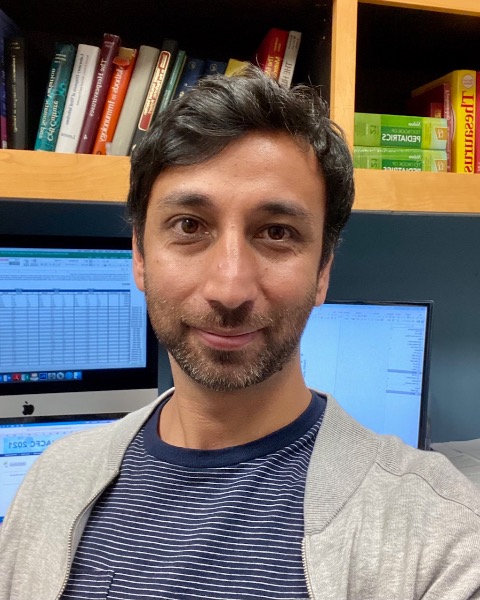IMI
S21--Metabolic Cross-Talk Between Pathogens & Host in Cystic Fibrosis
-

Sebastian Riquelme, PhD
Department of Pediatrics
Columbia University -

Hazel Ozuna, PhD (she/her/hers)
Emory University
Chair(s)
Inflammation is a major driver of the progressive pathology in the lung of people with cystic fibrosis (pwCF). This setting is worsened by infection, such as the caused by the major CF pathogens Pseudomonas aeruginosa, Staphylococcus aureus, Burkholderia spp and Nontuberculous mycobacteria (NTM). These opportunists promote not only a brisk inflammatory response to infection that compromises the ability of the host to breathe, but also readily adapt to the CF airway to thrive for the long-term. The frequent colonization of the lung of pwCF by these pathogens, but not others, strongly suggest that inflammatory cells in this environment provide these organisms with specific signals that facilitate their survival instead of clearance. However, how this process occurs remains poorly understood. In this symposium, we will provide the CF community with an original discussion on novel mechanisms of bacterial survival in the CF airway, particularly the pathogen exploitation of metabolic platforms that orchestrate the inflammatory response to infection (“immunometabolism”). Furthermore, we will examine how these metabolic circuits are altered in CF phagocytes, and how these changes increase the susceptibility of pwCF to develop chronic bacterial colonization.
Upon infection, phagocytes like macrophages undergo profound metabolic reprogramming. These cells switch their energy production from mitochondria to glycolysis, rapidly consuming glucose from the local environment. This metabolic rewiring prompts the synthesis of many tissue-oxidizing cytokines, as well as the release of an array of metabolites involved in immunoregulation, such as itaconate, succinate, pyruvate, and lactate.
Learning Objectives:
- Discuss novel lines of evidence suggesting that it is the metabolic milieu established by inflammatory phagocytes that fuels the persistence of P. aeruginosa, S. aureus, Burkholderia spp and NTM in the lung of pwCF.
- Examine how immunometabolites released by host cells influence the ability of CF pathogens to generate energy, toxins, and biofilms, and how these opportunists synchronize their own metabolic needs with the metabolic program of inflammatory phagocytes to thrive in the respiratory tract.
- Define how metabolic platforms that control inflammation impact host-pathogen interaction in the CF lung.
Presentations:
-
2:30 PM - 4:30 PM ETS21.1- Immunometabolic Control of Innate Memory During Staphylococcus aureus and Pseudomonas aeruginosa Coinfections
Speaker: Sahil Mahajan, PhD – Ohio State University
-
2:30 PM - 4:30 PM ETS21.2- Immunometabolic Regulation of Epithelial-macrophage Cross-talk in the CF Airways
Speaker: Jennifer M. Bomberger, PhD (she/her/hers) – Geisel School of Medicine at Dartmouth
-
2:30 PM - 4:30 PM ETS21.3- Mitochondrial Regulation of Tolerance to Bacterial Lung Infection
Speaker: Sebastian Riquelme – Columbia University
-
2:30 PM - 4:30 PM ETS21.4- Metabolomics Approaches to Probe Interactions Among Microbe-host-drug in the Genus Burkholderia
Speaker: Neha Garg, PhD (she/her/hers) – Georgia Institute of Technology

